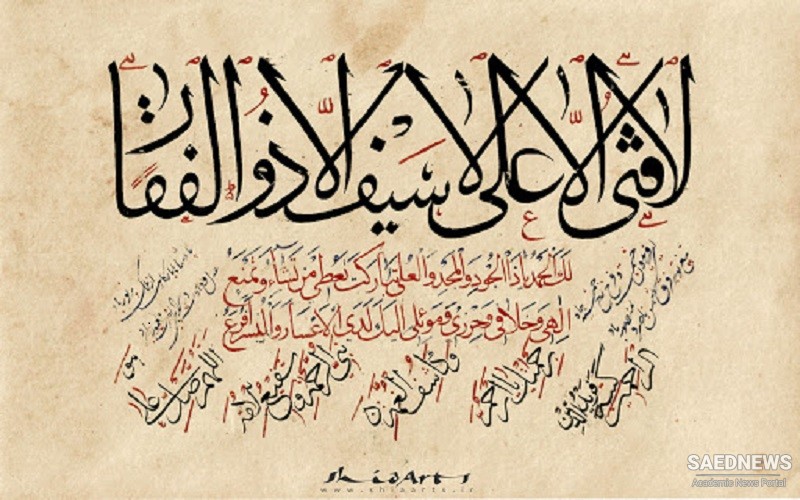In the Medinan period, Ali distinguished himself on the field of battle, as a scribe of the unfolding revelation of the Quran, and as a leading companion of the Prophet. His courage and heroism in the battles fought against the overwhelmingly superior forces of the Meccan Quraysh and their allies was second to none. Ali was at the forefront of nearly all the major battles fought under the Prophet’s banner, frequently being appointed as standard-bearer. He was undefeated in all the single-combat duels with which the battles normally began—indeed, he was never defeated in any battle in which he fought. Both his indomitable courage and incomparable skill as a warrior became legendary. It is said that during the battle of Uhud, a heavenly voice was heard proclaiming, ‘There is no chivalric knight but Ali, no sword but Dhulfiqar’, the latter being the name of Ali’s sword given to him by the Prophet. But the most famous of all battles in establishing Ali’s reputation as the pre-eminent—indeed invincible—warrior of Islam was that of Khaybar in 7/629. The Muslims were unable to make any headway against the heavily fortified, apparently impregnable, defences of their opponents. The Prophet then declared that he would give the banner of his army to one who ‘loves God and His Messenger and is loved by God and His Messenger’, through whom victory would be granted. He sent for Ali, who was absent because of an affliction of the eyes. The Prophet cured him of this ailment by placing some saliva upon his eyes, and Ali proceeded to lead the Muslims to victory. In the thick of battle, having lost his own shield, he is said to have picked up a gate and used it as a shield—a gate which, after the battle, could only be lifted by eight men (Source: Justice and Rememberance).


 Prophet's Mosque in Medina, Tomb of Holy Prophet of Islam, Saudi Arabi
Prophet's Mosque in Medina, Tomb of Holy Prophet of Islam, Saudi Arabi














































